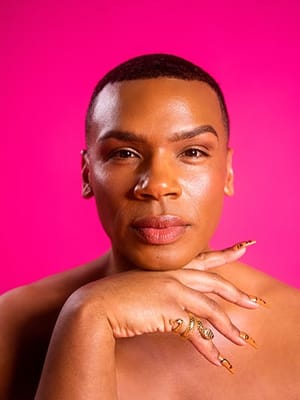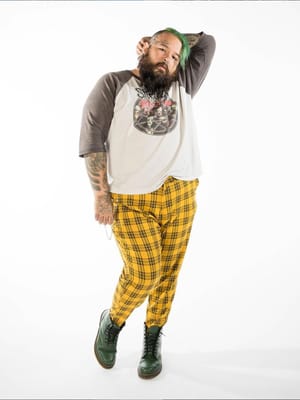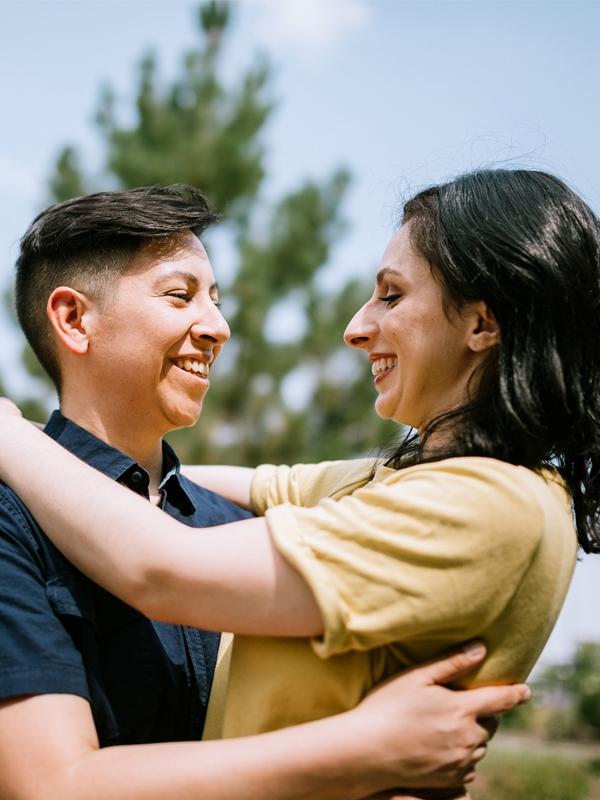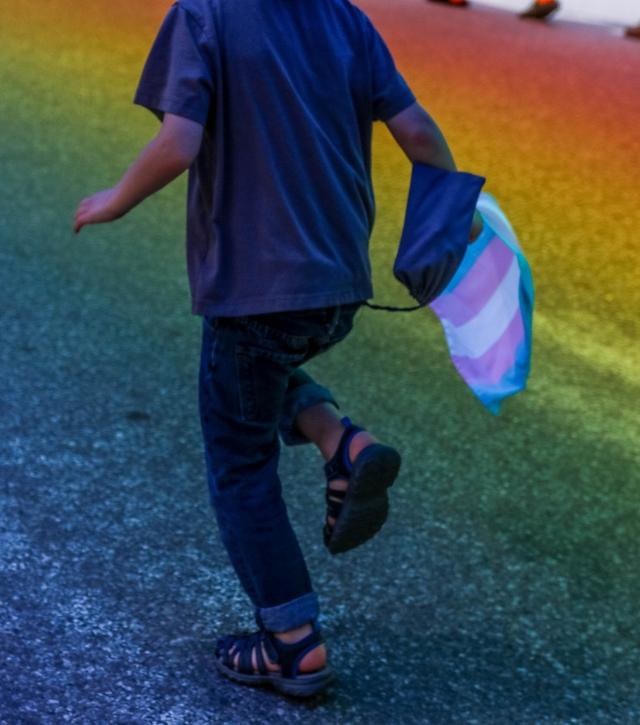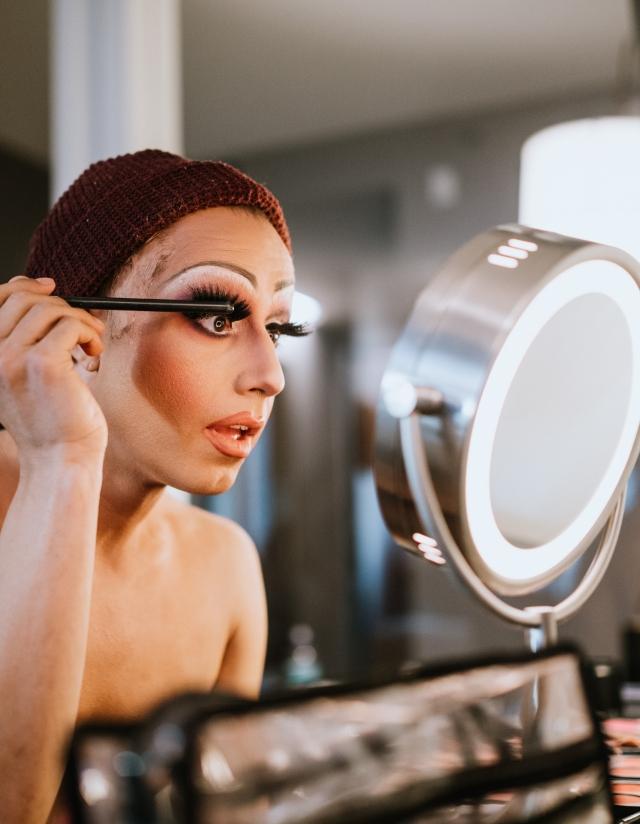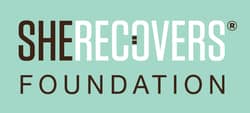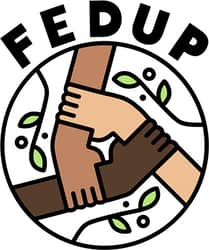 Carrie Zhang
Carrie Zhang
You are unique. Your treatment should be, too.
Sexuality and identity do not come with a one-size-fits-all approach; there are many variations in physical and emotional attractions, gender expression, and gender identity. We recognize the complexities of each coming out journey—before, during, and beyond—and we meet individuals and families with compassion wherever they are in their process. The goal is not for them to come out, rather we hope to support self-understanding and self-acceptance and to give our patients the resources to choose self-expression in whatever context and place they choose.
By individualizing a patient's needs and tailoring our support to that specific person, we address their needs in the moment. We aim to help our patients increase their resilience– to have the tools needed in the moment to weather whatever storms come – to manage whatever feelings, thoughts, and questions may be keeping them from living their values-based life.
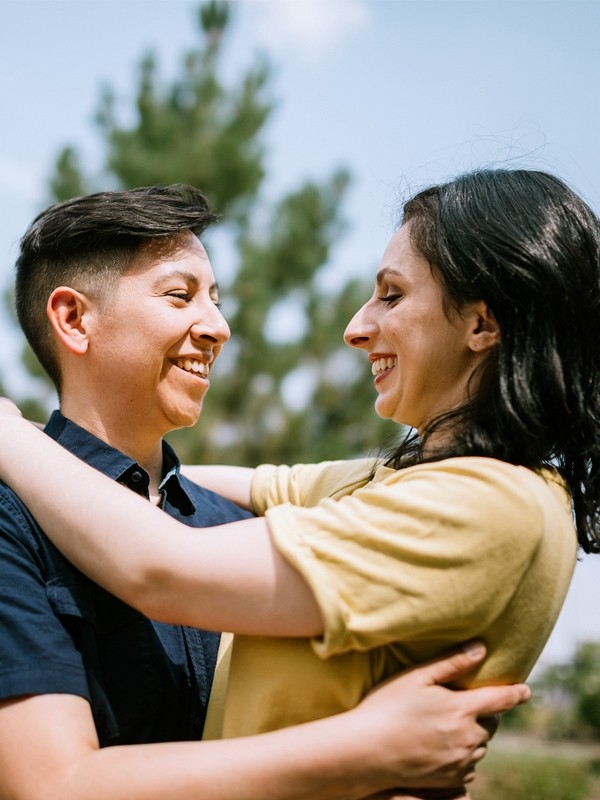
At ERC Pathlight, we want our patients to have an affirming and supportive experience in a safe, comfortable environment, and with our team. For that purpose, we remain open-minded, curious, and compassionate as our patients lead the conversations expressing themselves and their needs. Though our patients may have experienced isolation and loneliness prior to their arrival, we want to ensure that ends here, and that they feel like an honored member of communities.
We do not tolerate disrespect and bias from our staff or our patients and act swiftly to ensure that LGTBQ+ patients feel affirmed, supported, and accepted in their treatment environment.
Affirming Eating Disorder Recovery Centers
Our treatment centers honor all pronouns and genders at all levels of care. We have made it a standard across every center to use pronouns based on a patient’s direction within legal requirements, including in our residential and child and adolescent programs. In an effort to ensure a patient’s comfort and identity, we also equip our treatment centers with gender-inclusive process groups run by affirming and knowledgeable staff. Additionally, your pronouns and name are posted outside of your room and printed on your wristband for the medical team’s awareness.
While we must abide by legal regulations in each state – such as variances in regulations for gender-inclusive bathrooms – where there are gender-assigned bathrooms, we allow patients the choice of which bathroom they feel most affirms them.
We will do our part to train our clinicians and educate our communities on inclusivity. Our patients are not here to teach—that is our role—our patients are here to heal.
Within our centers, transgender patients are given the first choice when it comes to room assignments including the option to have a single occupancy room if and whenever possible.
Gender-affirming clothes such as binders and other devices that support gender expression are always allowed as long as they do not interfere with safety.
Learn more about our approach to eating disorder treatment with transgender individuals.
LGBTQ+ Resources
We're committed to providing compassionate and inclusive resources to all members of the LGBTQ+ community. Free support groups, mental health resources, information about LGBTQ+ and BIPOC Treatment Equity for Eating Disorders, as well as Gender-Affirming Care Resources, are available to help you feel supported and empowered as you work towards recovery. We're here to help you find your resilience and live your values-based life with pride.

-
Eating Disorder Support Groups
-
Mental Health Resources & Support Groups
Pathlight LGBTQ+ Mental Health Support Group
LGBTQ+ Mental Health Support Group | Pathlight Mood & Anxiety Center
www.pathlightbh.comNami NYC Metro Virtual LGBTQ+ Support Group
LGBTQ+ (Virtual) - National Alliance on Mental Illness of New York City , Inc.
www.naminycmetro.orgThe Trevor Project
866-488-7386
www.thetrevorproject.orgLGBT Nation Help Center
415-355-0003
www.glbtnationalhelpcenter.orgTrans Lifeline
877-565-8860
www.translifeline.orgAddiction Center
866-280-8316
www.addictioncenter.com/addiction/lgbtqAsian Mental Health Project
www.asianmentalhealthproject.comSHE Recovers
www.sherecovers.org/together-online/lgbtq -
LGBTQ+ and BIPOC Treatment Equity for Eating Disorders
-
Gender-Affirming Care Resources
Letter Writing
Hormone Replacement Therapy (HRT)
- FOLX Health - Online affirming care for the LGBTQ+ community
- Plume – Gender-Affirming Hormone Therapy From Anywhere (getplume.co)
Clothing
Partners
We recognize that the work of our community partners has an invaluable and positive impact on the mental health of the LGBTQ+ community. We thank them for their work and are honored to be partnering with them to spread affirming resources including support groups, trainings, education, and treatment equity.
Speaking Out Loud with Fonda
“Speaking Out Loud with Fonda” is a recorded video series with Eating Recovery Center hosted by Mental Health Advocate Eric Dorsa (they/them) aka Fonda. Each episode will focus on a different guest and topic related to mental health with the purpose of healing stigma and finding our common humanity. Mental health does not discriminate and yet so often the systems we must navigate on our journeys of wellness are full of stigma and shame. In this series Fonda and her guests will “speak out loud” how they have overcome stigma and other obstacles on their journey towards healing and a life worth living.
Say It Brave
Say It Brave is an inclusive community dedicated to fostering connection, providing free resources, and ending mental health stigma. We believe that sharing your truth in a safe space, or “Saying It Brave” is essential to healing. Sign up below to receive our newsletter and join a community of truthtellers and recovery seekers.
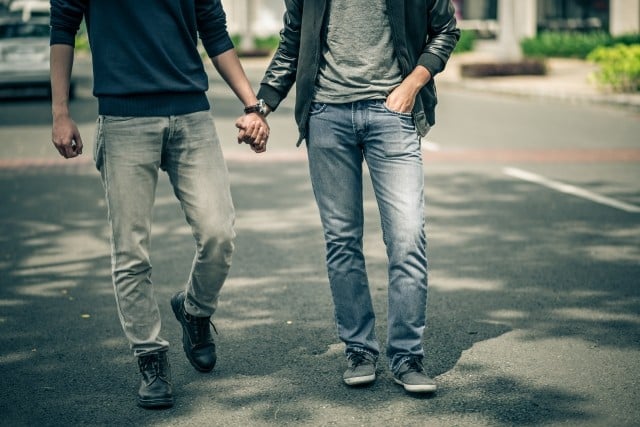
Out Loud Pride Summit
Our annual Out Loud Pride Summit is a day of education and elevating and advocating for the voices of the LGBTQ+ community with continuing education opportunities for professionals coupled with lived experiences for all. You will not want to miss our lineup of renowned clinicians, LGBTQ+ speakers, influencers, and advocates.
We are deeply grateful for the work of our providers and the generosity of our advocates sharing their stories to help end stigma and give insight into the realities of mental health. We are also grateful to you for being part of such an incredible and growing community.
Continuing Education on LGBTQ+ Topics
We acknowledge and recognize that research gaps have had harmful impacts on the ability of LGBTQ+ people to find the treatment and support they need. We are committed to continually learning and growing in our understanding of how to best serve the needs of our LGBTQ+ patients and their communities of support. With our special learning path of LGBTQ+ CE offerings, our hope is that you will join us in making healing spaces more inclusive and accessible for all patients.
Please use code LGBTQ+2024 when registering for access to our comprehensive LGBTQ+ CE library and our past Out Loud Pride Summit CE offerings.

LGBTQ+ Eating Disorder Facts & Statistics
Stressors
Significant stressors like those associated with a history of microaggressions, discrimination and marginalization, stigmatization, and social rejection, bullying and teasing, harassment and physical violence, or outright rejection from one’s family of origin and/or community, can all lead directly to behaviors such as disordered eating. [1]
Transgender College Students
Transgender college students were significantly more likely than members of any group of college students to report an eating disorder diagnosis in the past year. [2]
LGBTQ+
LGBTQ+ patients who sought eating disorder treatment often report suffering macroaggressions, negative experiences, and a lack of gender competence when seeking care. [3]
42% of Males with Eating Disorders Identify as Gay
Gay males are thought to only represent 5% of the total male population but among males who have eating disorders, about 42% identify as gay. [4]
Higher Prevalence of Eating Disorder
Compared with heterosexual men, gay and bisexual men had a significantly higher prevalence of lifetime full syndrome bulimia, subclinical bulimia, and any subclinical eating disorder. [5]
Elevated Rates of Binging and Purging
Elevated rates of binge-eating and purging by vomiting or laxative abuse was found for people who identified as gay, lesbian, bisexual, or “mostly heterosexual” in comparison to their heterosexual peers. [7]
Sources
[1] Diemer, E. W., Grant, J. D., Munn-Chernoff, M. A., Patterson, D., & Duncan, A. E. (2015). Gender identity, sexual orientation, and eating-related pathology in a national sample of college students. Journal of Adolescent Health, 57(2), 144-149.
[2] Duffy, M. E., Henkel, K. E., & Earnshaw, V. A. (2016). Transgender clients’ experiences of eating disorder treatment. Journal of LGBT Issues in Counseling, 10(3), 136-149.
[3] Austin, S. Bryn, Sc.D.. 2004. Sexual Orientation, Weight Concerns, and Eating- Disordered Behaviors in Adolescent Girls and Boys. Journal of the American Academy of Child & Adolescent Psychiatry, V43.
[4] Center for Disease Control and Massachusetts Department of Education. 1999. Massachusetts State Youth Risk Behavior Survey. National Gay and Lesbian Task Force (with National Coalition for the Homeless).
[5] Ray, Nicholas. 2007. Gay, Lesbian, Bisexual and Transgender Youth: An Epidemic of Homelessness. National Gay and Lesbian Task Force and National Coalition for the Homeless.
[6] Waldron, Jennifer J., Semerjian, Tamar Z., Kauer, Kerrie. 2009. Doing ‘Drag’: Applying Queer- Feminist Theory to the Body Image and Eating Disorders across Sexual Orientation and Gender Identity. In The Hidden Faces of Eating Disorders, Edited by Justine J. Reel & Katherine A. Beals, (63-81).
[7] Waldron, Jennifer J., Semerjian, Tamar Z., Kauer, Kerrie. 2009. Doing ‘Drag’: Applying Queer- Feminist Theory to the Body Image and Eating Disorders across Sexual Orientation and Gender Identity. In The Hidden Faces of Eating Disorders, Edited by Justine J. Reel & Katherine A. Beals, (63-81).
Pathlight Statistics:
Discrimination, harassment, and prejudice based on one’s identity (i.e., heterosexist social policies) are considered external stressors, whereas the negative thoughts, feelings, and emotions one has as a result of their identity (i.e., internalized heterosexism) are considered internalized stressors. Minority stress is therefore additive to the standard stressors (i.e., work, finances, personal set-backs) generally experienced by all members of society.
From a minority stress perspective, individuals from the recently recognized EIs (i.e., pansexual, demisexual) may experience greater identity unique stress due to holding a minority status within the LGBTQ community. Such a status could potentially result in an increase in stigma, prejudice, and discrimination.”
Reports on adolescents who were unsure of their sexual identity suggests that questioning individuals may be as much as three times more likely to report suicide ideation compared with hetero-sexual adolescents, though not statistically different from gay, lesbian, or bisexual participants. (Zhao, Montoro, Igartua, & Thombs, 2010).
Frequently Asked Questions
-
What is your general philosophy on treatment when it concerns a person who identifies as part of the LGBTQ+ community?
Our philosophy is to ensure that people have the space to explore any connections that may exist between their mental health conditions and their sexuality and identity, in a way that is validating, open and curious. The complex process of identity development can be associated with various thoughts, feelings, and experiences that seem overwhelming. And while LGBTQ+ related issues do not cause mental illness, understanding one’s identity and managing the personal and cultural stressors inherent in being part of a marginalized population improves care outcomes and individual well-being.
Our teammates are trained to recognize that each patient is different and to honor them where they are. We do this by individualizing mental health treatment plans that best meet their unique needs. We help them discover that the answers ultimately are going to come from them, not outside of them. In the right space, they can hear and communicate their own voice. We work to be truly present and to listen to and learn together.
-
How do you treat someone who is questioning their gender and/or sexuality?
We remain open-minded and compassionate by allowing their perspective to lead. Since every patient is unique, we will address questioning specifics to them in individual and, if the patient is comfortable, in family sessions, tailored to that patient’s profoundly personal history and experience. By providing an environment with compassionate support that nourishes their truth, they can find themselves and their own authentic voice. We ensure that THEIR voice is the loudest.
We provide support and education to families and caregivers, realizing they may have misconceptions and judgments that, while coming from a very loving place, can land in hurtful ways. As requested by and in collaboration with the patient, we will provide – to whatever level they feel would be helpful – skills for their support system on how to assist them with this part of the journey. This can include providing education, teaching compassionate skills, and ultimately, just encouraging them to come forward in the same way, embodying those skills (to be open, compassionate, and allow their loved one’s perspective to lead).
-
Do you understand the unique needs of transgender patients, including those who are transitioning?
We train our teammates on LGBTQ+ competencies including, when appropriate, strategies to support social, legal, and medical transitioning. For example, our patients are asked to tell us their gender identity, their pronouns, and the name they wish to be called. Gender-neutral bathrooms are available. If patients are on Hormone Replacement Therapy (HRT), we usually continue it and, if needed, help them find access to such therapies during and after treatment.
By consistently learning, we are trained to listen and acknowledge what our patients are going through with respect to their identity in a society and culture which, in large part, may not accept the journey they are on. Our goal is to support them on their individual path.
We know that the transgender and gender-nonconforming community experience discrimination, harassment, bias, and lack of informed medical and mental health care that contribute to increased levels of depression and anxiety.
We have trans and nonbinary teammates and teammates who are parents and other close family support to trans and nonbinary loved ones. Those of us who are not transgender don’t experience how truly challenging and marginalizing our culture can be. Our goal is to always honor and validate every patient’s experience, to listen, and to help meet their unique needs to be their full and authentic selves.
-
What if a patient who identifies as LGBTQ+ has comorbidities, such as substance-related and addictive disorders?
We understand that members of the LGBTQ+ community have emotional and physical stresses like cultural bias, higher unemployment rates, social ignorance, less access to treatment, and they have higher rates of substance abuse and substance use disorder. Therefore, we are prepared to address substance abuse as well as eating disorders and/or mood and anxiety disorders with specialty programming that supports and treats both issues. We are also prepared to assess for and offer support with co-occurring addictions, such as internet, gaming, gambling, and shopping.
-
What if my parents or loved ones do not support my sexuality or identity?
It hurts when important persons and communities in your life do not accept or appreciate you for who you are. You are not alone. In family therapy, we will provide education and support in understanding the fears that could be interfering with acceptance and validation. No matter your situation, we will help you find a supportive and safe community while in treatment and when leaving treatment. This includes connecting you with an informed network of outpatient clinicians and matching you with inclusive providers in order to support you as you continue your journey of mental health and self-discovery.
Even when families struggle to accept a patient’s gender identity, most patients don’t want to give up on relationships with their caregivers. When a family of origin is not willing or able to be involved in our patient’s healing journey, we include the patient’s family of choice in their care. We’re going to be there to support you through that and make sure you have a support system that can help you. Through Emotion-Focused Family Therapy (EFFT), we help caregivers increase their efforts in becoming their loved one’s emotion coach, and behavior coach, to improve understanding and acceptance, and help to heal the wounds in their relationship. We help them look at what blocks them from being effective in using these skills; this can include their own assumptions, preconceived notions, and grief that can arise in supporting a loved one with coming out.
We approach caregivers from a compassionate place, with the goal of helping them release the shackles of their emotions so they can fully support their loved one. We believe that caregivers want and are capable of supporting loved ones through this process, and they deserve that support to help them get there. We aren't going to give up hope.
-
Does ERC Pathlight understand the unique stressors experienced by the LGBTQ+ community and the impact these stressors have on mental health?
It is our mission to provide the most affirming and compassionate care we can to all of our LGBTQ+ patients. At ERC Pathlight, we understand that discrimination against LGBTQ+ persons and the reinforcement of the gender binary has created harmful gaps in medical, mental health care, research, and treatment for transgender, gender nonconforming, and other members of the LGBTQ+ community. The assumption that a patient is heterosexual or cisgender when presenting for treatment only further marginalizes an individual who is stigmatized in a cisgender and heteronormative society. These assumptions make no room for a patient to examine the stress related to questioning their gender and sexuality as well as the trauma of having to hide their gender or sexuality to survive in a society still full of prejudice.
-
Does the ERC and Pathlight team understand the critical differences between Gender Dysphoria and Body Dysmorphia?
We do, and we also understand how this can impact mental wellness. Foremost, we do not assess or diagnose either for our patients, but instead, work with each individual on their journey to self-identify. We know the definitions, but it is up to you to discover what impacts you and then incorporate that into your recovery plan.
Gender dysphoria is the feeling of distress or discomfort because of the difference between someone’s biological sex assigned at birth and their gender identity. Transgender and non-binary persons can experience this, however it is important to note that not all transgender and non-binary persons have gender dysphoria. At Eating Recovery Center and Pathlight Mood & Anxiety Center we understand that gender dysphoria is not experienced by a person because they are trans or gender nonconforming. Rather, gender dysphoria is exacerbated by society’s rigid binary gender roles and expectations.
Body Dysmorphic Disorder or Body Dysmorphia is the sense of dissatisfaction with one’s body, and the perception that their body is flawed or defective. Body dysmorphia is a common contributing factor to mental health complications which can require anorexia nervosa treatment. Body Dysmorphic Disorder is present in at least 25% of people with anorexia nervosa, and body image distortions are almost always present in these cases.
Still, it is your journey; learning what affects you is a process, and we collaborate with you every step of the way.
Hide Last Child Layout Div




